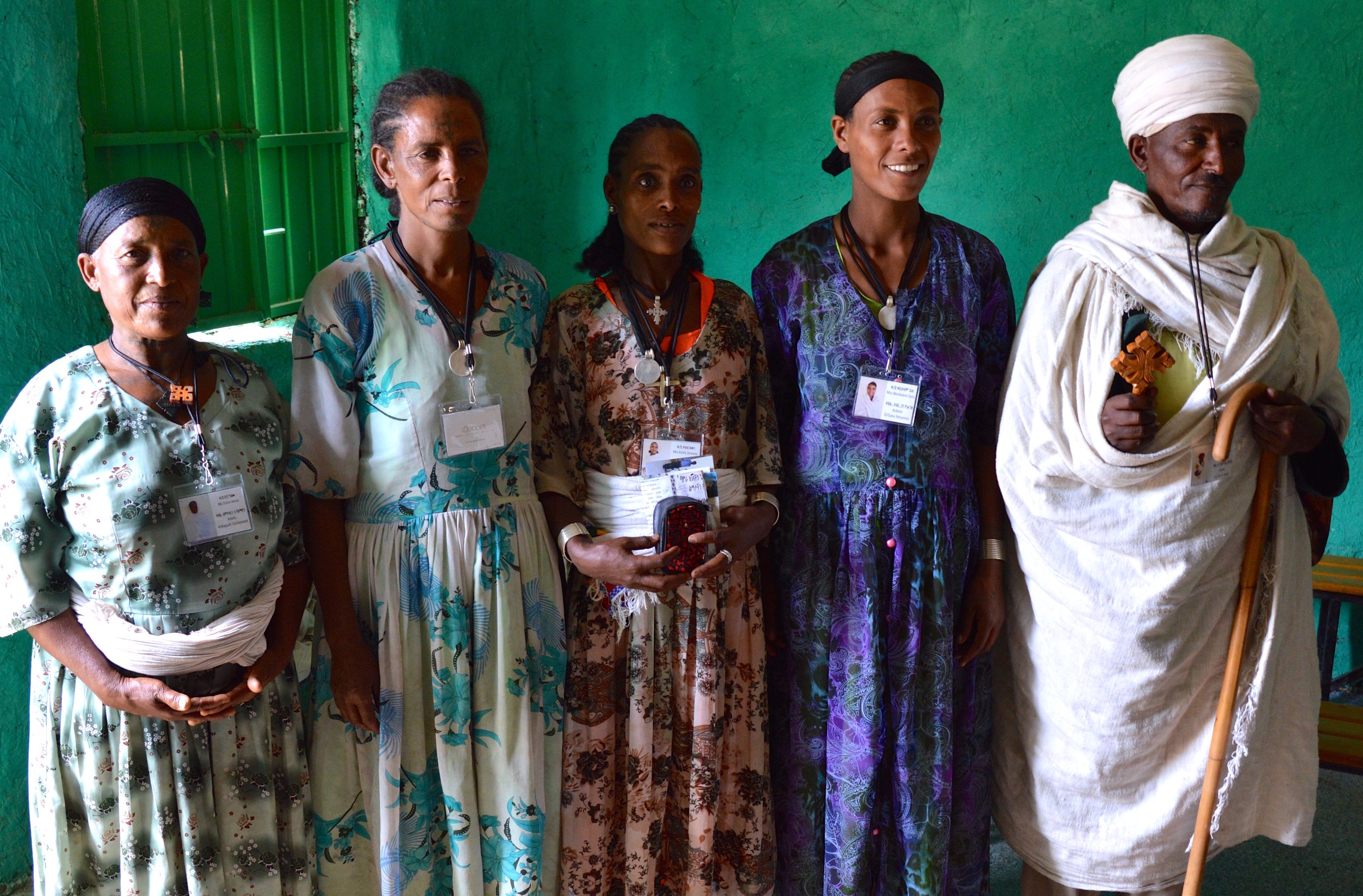bringing communities together to prevent maternal and newborn death
SCOPE programs bring together medical professionals and faith leaders to improve access and uptake of life-saving maternal and newborn healthcare services. In 2018, 39 out of every 1000 infants died before their first birthday. While births with skilled providers in health facilities are on the rise, more than half of women still delivered their babies at home in 2019 without a healthcare provider with training and resources to deal with complications during childbirth. Reducing maternal and neonatal deaths has been at the top of the World Health Organization’s global health agenda for over a decade. Use of MNCH (Maternal, Newborn, and Child Health) services, however, still remains low in Ethiopia’s rural communities. Complex challenges including transportation, health literacy, imbalanced decision-making authority, and traditional medical practices create barriers to increasing coverage. Our programs focus on improving access to antenatal care, facility delivery, and care for newborns.
Leading Advancements in the Uptake of Newborn & Community Health (LAUNCH)
The broad goal of SCOPE is to deliver and spread effective interventions that improve health. Yet, effective programs can fail to deliver impact if they have poor implementation at scale. The LAUNCH trial, funded by the Frankel Family Foundation, uses rigorous methods known as implementation science, to help prepare the model for a rapid and successful transition from a small clinical trial to widespread implementation if the trial shows positive results. The LAUNCH trial works to validate a model where faith leaders partner with community health workers to improve newborn health.
Dieudonne Hakizimana, a Ph.D. student in the UW Implementation Science program and SCOPE pre-doctoral fellow Kegnie Shitu from the University of Gondar are working together to assess the potential of Ethiopia's health system to scale up the LAUNCH intervention. They assess six readiness domains—policies, leadership structure, financial resources, material resources, technical capacity, and community delivery infrastructure. Information gained from the survey and upcoming stakeholder workshop will help drive the next steps in planning for broader implementation.
Dr. Getahun, SCOPE Principal Investigator, communicates with faith leaders during a group discussion.
FAITH LEADERS ADVOCATING FOR MATERNAL EMPOWERMENT (FLAME)
FLAME trainees at the University of Gondar.
A priest meets with community health workers at the Aymba Clinic to discuss community outreach.
SCOPE is testing an intervention designed to prevent maternal death called Faith Leaders Advocating for Maternal Empowerment, or FLAME. The program responds to the need to increase the number of women who get medical care during pregnancy and delivery in Ethiopia. The two-year FLAME study will inform and test a SCOPE outreach intervention that pairs Orthodox priests with community health workers at six Health Centers in the North Gondar region. The study team will compare Health Centers that complete the training program with control sites that do not receive the intervention. This program will provide evidence on how successful SCOPE’s model is at increasing the number of women seeking antenatal and delivery services at government Health Centers. If successful, our data will provide insight into how this type of intervention might be replicated. Dr. Getahun Asres leads the FLAME team in developing tools for SCOPE’s outreach intervention. These tools will help us understand women’s behaviors and preferences around childbirth, assess Health Center readiness to participate in the program, and incorporate perspectives from male partners, religious leaders, and health workers into the program. In addition, the study team worked closely with partners in the Zonal Health Office, Amhara Regional Health Bureau, Ethiopian Federal Ministry of Health, and the North Gondar Diocese to map out a plan for completing the training and outreach intervention in rural Gondar communities and to keep all partners informed. We are extremely grateful for the support of our partners and their contributions to this study. Our work would not be possible without them.
Over the next few months the FLAME team will complete and analyze preliminary data. We look forward to sharing findings from the preliminary phase with you. For questions about the FLAME study, please contact Kate Pfizenmaier, SCOPE Program Manager at kpfiz1@uw.edu.






